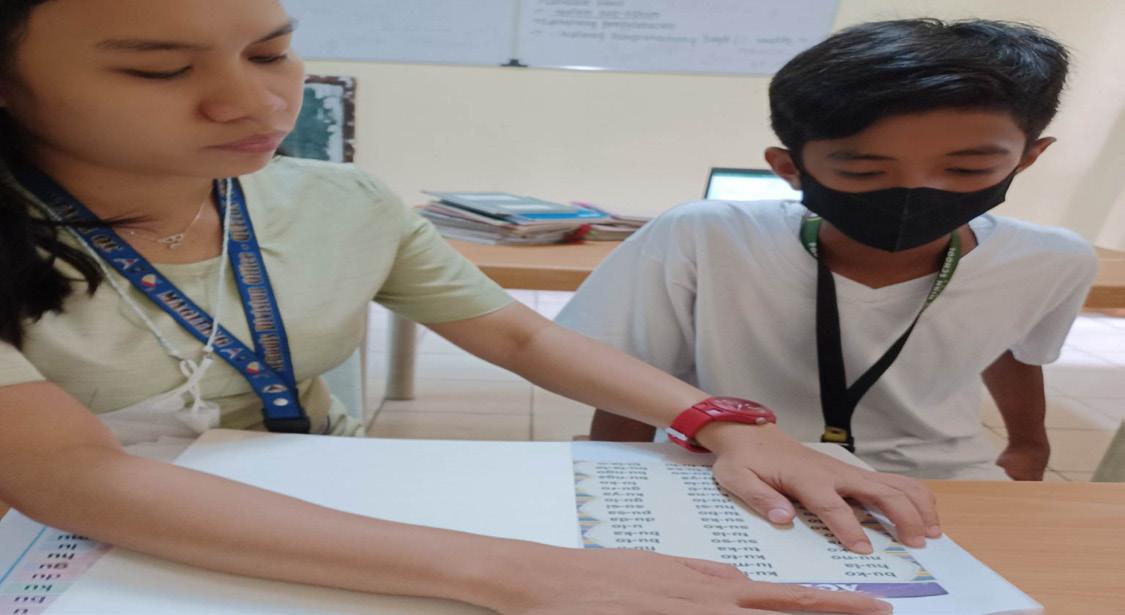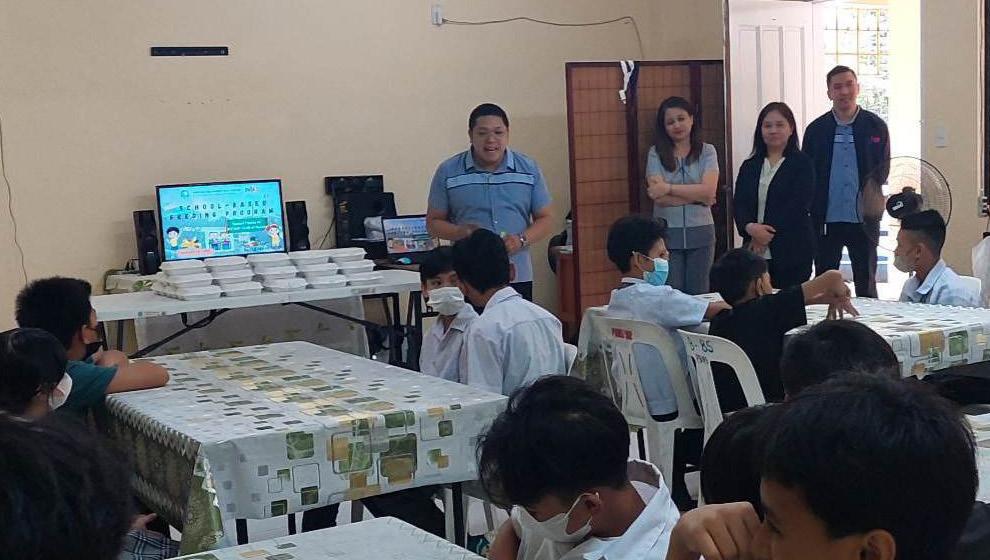
4 minute read
Key initiatives focus on closing gaps in reading, numeracy skills Project implementers: One child at a time
By John Vincent M. Manatad
ALTHOUGH Ponciano Bernardo High School returned fully for face-to-face instruction last August 22, the suspension of in-person classes had a negative impact on student achievement, and project implementers continue to focus on closing gaps in the reading and numeracy skills of Grade 7 learners.
Advertisement
In their progress reports during the schoolbased mid-year in-service training for teachers on February 9, Cristine Joy Gloria, Cristhy May Fojas, Danica Errazo, and Mayren Billalba highlighted the percentage of learners needing high levels of support in their reading and numeracy development and expressed their concerns over the findings.
PROJECT IRACE
Christine Joy Gloria, the project implementer of IRACE (Intensive Reading and Comprehension Enhancement), revealed that 47 out of 212 Grade 7 learners who took the Philippine Informal Reading Inventory (Phil-IRI) Pretest or 22% are under “frustration reading level,” and the majority of them are reading at
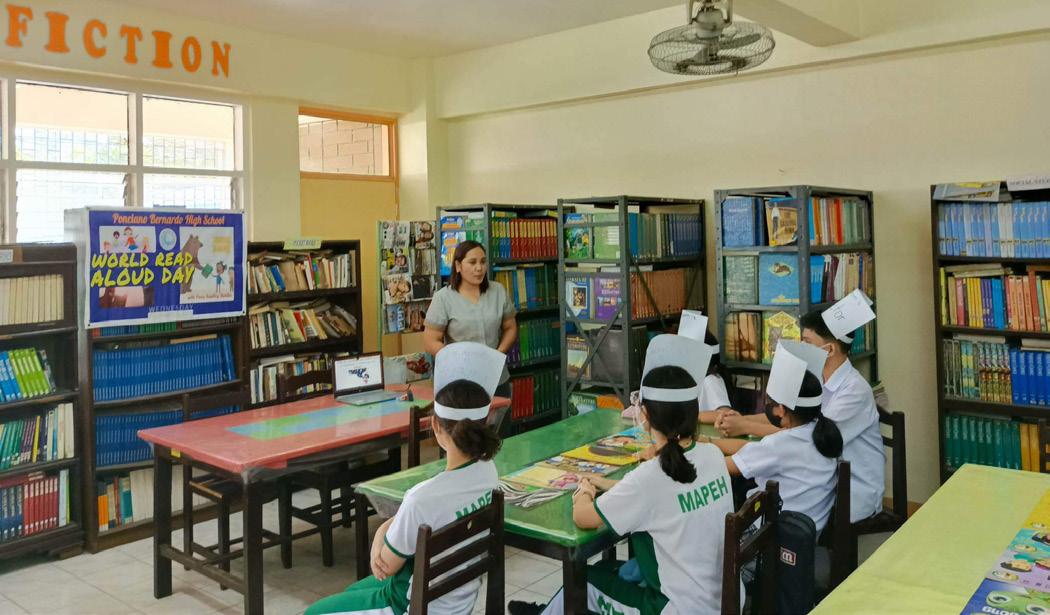
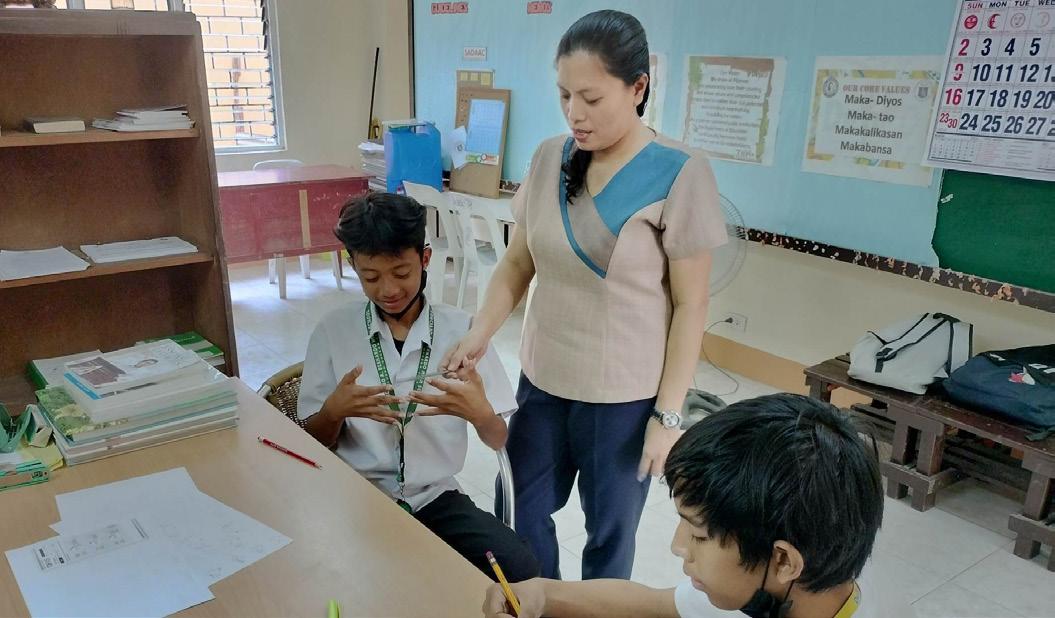
Grade 4 Level. Three out of the 47 frustrated readers were identified as “struggling readers,” she added.
Gloria said, “The Phil-IRI results showed the three identified Grade 7 learners are really struggling. By sharing the data with the children’s parents, they could see which words and letter combinations are challenging for them. This gave the parents much more confidence in their ability to help their children.”
PROJECT MAMASUBASA
Project implementer of MAMASUBASA (Magaaral ay Matuto Sumaya at Magbasa) Cristhy May Fojas also shared the same sentiments.
Fojas confirmed that the three identified Grade 7 learners who are struggling in English are the same students who have reading problems in Filipino.
The findings indicate that 25% of the 212 Grade 7 students who completed the Phil-IRI pretest, or 12%, fall below the “frustration reading level,” and most of them read at their grade level. Among the 25 frustrated readers, three were classified as “struggling readers,” she said.

“Results of the Phil-IRI made it abundantly evident that the three learners identified do not have
It is possible to teach learners about the joys of food - Trinidad says
By Michaela M. Atencia
“IT is possible to teach learners about the joys of food, and doing so will prepare them for a lifetime of healthy eating,” Feeding Program Coordinator Marlon Trinidad told The Hillside Chronicle
The objective of the school-based feeding program, according to Trinidad, is to provide free meals to the 35 student-beneficiaries from the different grade levels.
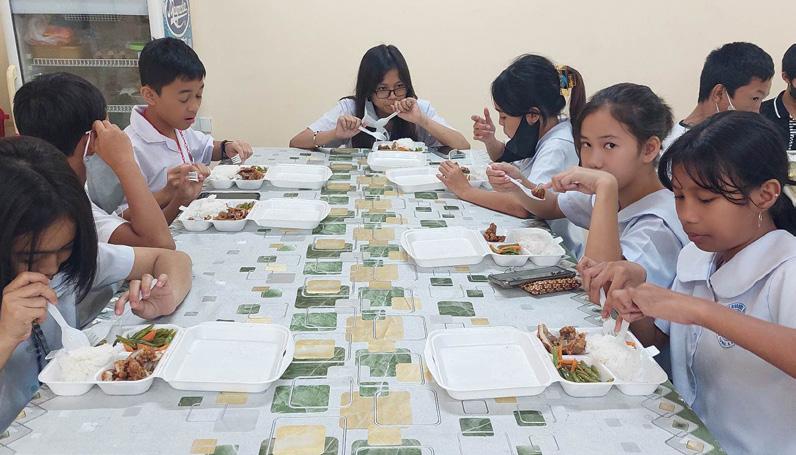
“In our feeding program, the beneficiaries are provided with a packed lunch consisting of a balanced and nutritious meal with fortified rice, meat, fruits, vegetables, and juices,” said Trinidad.
“We serve them complete and creative dishes. We have rice, a main dish, and a side dish. For example, a fried chicken coated with powdered malunggay and a dessert such as mamon, calchee, or biscuit,” he said.
Trinidad went on to say, “The school can
By Neil Brandon D.L. Vildad
break the cycle of malnutrition in the lives of these learners with the feeding program.” any major problems that may be keeping them from acquiring the necessary reading skills. It is their confidence that needed a boost,” said Fojas.
He also told The Hillside Chronicle that the schoolbased feeding program, through stakeholder engagement, can ensure the weekly and consistent provision of healthy meals that the beneficiaries can enjoy at school.
“The school can ensure a generation of healthy and nourished learners at Ponciano Bernardo High School with the support of our stakeholders,” Trinidad said.
“This school year, we have a lot of sponsors. Since the feeding program is school-based, 35% of the canteen sale is used for three-day feeding. 35% of the canteen sales are budgeted on Tuesdays. The GPTA is sponsoring the program on Wednesdays while meals on Thursdays are being sponsored by the Rotary Club of Murphy. Sometimes, Barangay Kaunlaran would also donate a sack of rice,” he told The Hillside Chronicle.
PROJECT MFO
Danica Errazo and Mayren Billalba, implementers of Project MFO (Mastery of Fundamental Operations) showed that 42 out of the 194 Grade 7 learners who took the Grade Appropriate Mathematics Assessment (GAMA), or 22% are identified as “nearly proficient.”
“Kung alam naman nila ang fundamental operations hirap sila na matandaan ang mga rules ng number signs, may math anxiety lalo na kung naka-experience sila na mapahiya ng masungit na teacher, boring ang subject.” (If a student already knows the fundamental operations, they are unable to memorize the number signs, especially those who have math anxiety.)
Furthermore, if a student experiences being publicly shamed by a teacher, it will result in them being bored by the subject, or even hating it.), said Billalba.
ENCOURAGING PROGRESS, TARGETED SUPPORT
Citing the results of Phil-IRI and GAMA which showed the poor performance of Grade 7 learn- ers in reading and numeracy also underscores the value of education and the part that stakeholders of the school play in helping learners advance academically, the project implementers said.
I-RACE and MAMASUBASA featured three essential components, such as literacy program (Mastering the Big Six), individual reading recovery program (Helping Learners-at-Risk) and reading enrichment program (Attaining Culture of Reading).
Following the projects’ implementation plans, each learner is given a thirty-minute targeted intervention lesson in a dedicated space on four days during the week.
Project implementers generally have a fifteen-minute break between learners during which time they document learning and plan for the following day. By the end of the intervention, each learner is then provided with ongoing in-class support.
The project implementers said in order to support the success of the learners in reading and numeracy, the PBHS community all needs to work together to change lives, one child at a time.
PBHS receives three-star for WinS
According to WinS Coordinator Corine Ular, this program encourages students and teachers to “adopt excellent hygiene habits that will protect them from disease-causing germs and viruses while in school.”
“The WinS program of PBHS offers a holistic approach to implementing hygiene and sanitation practices among learners and a clean environment in and around our school to keep learners safe and healthy,” Ular said.
By Jewel F. Acuna
BY meeting the WinS national standards, Ponciano Bernardo High School received a three-star rating for its Wash in Schools (WinS) program from the Schools Division Office Quezon City (SDOQC) Monitoring and Evaluation (M&E) team last March 23.
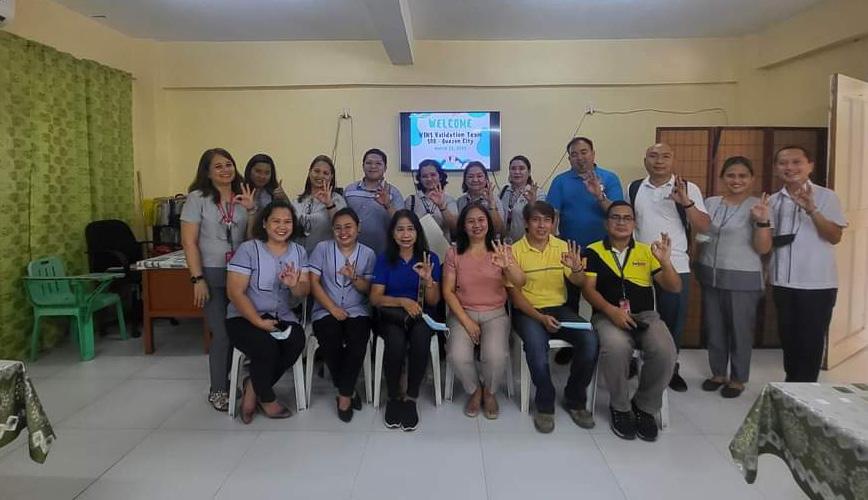
Based on the results of SDOQC M&E, PBHS successfully met the 5 crucial indicators stipulated in DepEd Order No. 10 series of 2016 titled “Policy and Guidelines for the Comprehensive Water, Sanitation, and Hygiene (WASH) in Schools (WinS) Program.”
PBHS complied with “access to safe drinking water, availability of sanitary pads, gender-segregated toilets, supervised daily group handwashing, and the availability of group handwashing facilities with soap,” the SDOQC M&E read.
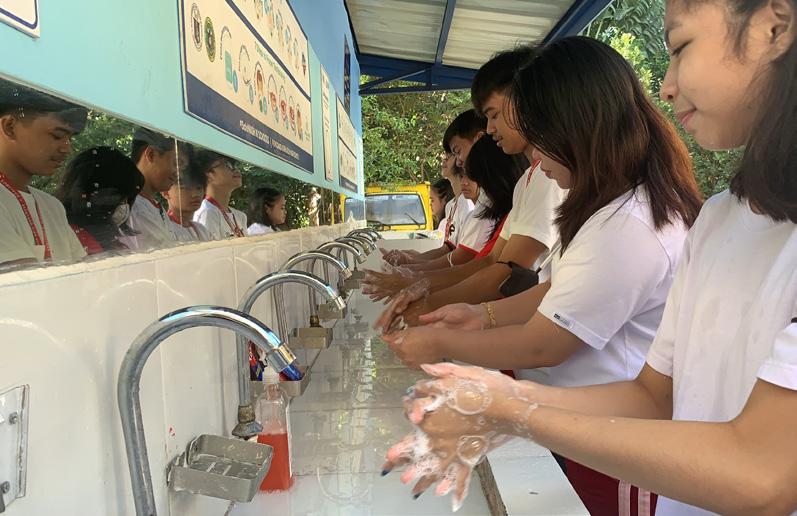
The WinS program is a three-star grading system that was implemented by the Department of Education (DepEd) in 2016 to assess public schools in the areas of safe drinking water, gender-segregated toilets, group handwashing facilities with soap, daily group handwashing, and access to sanitary pads.
